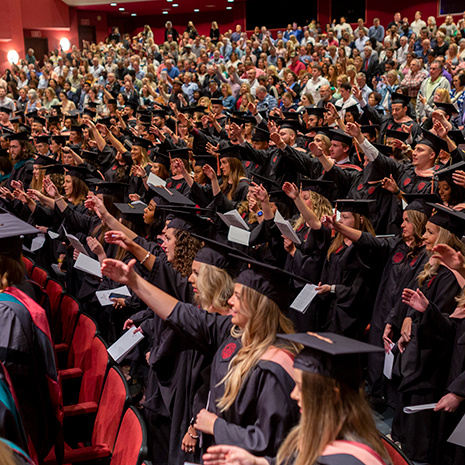
Find Out More
Health Services Policy and Management (HSPM) is an interdisciplinary field concerned with the promotion of personal and public health through planning, organizing, directing, controlling, coordinating and evaluating health services.
December 6, 2023 | Erin Bluvas, bluvase@sc.edu
Valerie Yelverton recently left USC after nearly a decade of collaborations and a Ph.D. in Health Services Policy and Management (HSPM). The August graduate departed for Duke University in September to join the School of Medicine’s Division of Infectious Diseases as a postdoctoral scholar. Funded by the National Institutes of Health’s Ruth L. Kirschstein National Research Service Award (NRSA; award # 5T32AI007392), she’ll conduct research with the Interdisciplinary Research Training Program in AIDS.
“My T32 research project builds on my dissertation research and identifies preference-centered telehealth-supported HIV care options to reduce inequalities along the HIV care continuum in the Southern United States,” Yelverton says.
Originally trained as a physical therapist, Yelverton’s interests soon encompassed research and health care systems/decision making, and she completed additional degrees (B.S. in Public Health and Administration; M.S. in Health Sciences) in her native Germany. In 2015, she traveled to USC for a one-year fellowship through the Biomedical Sciences Exchange Program (International Academy of Life Sciences).
As a visiting scholar, her role involved estimating treatment preferences for people living with HIV. Yelverton’s interests expanded to include health disparities in the prevention and treatment of infectious diseases, and she made plans to return to the Arnold School a year later to pursue a doctoral degree and continue learning from her mentor, HSPM associate professor Jan Ostermann.
The Norman J Arnold Doctoral Fellow spent two years as a Junior Scholar with the South Carolina SmartState Center for Healthcare Quality – researching telehealth in HIV care in SC. She found mentors in center investigators Shan Qiao and Sayward Harrison, who introduced Yelverton to new research methodologies and encouraged her to explore different research topics.
With support from a SPARC grant awarded by the USC Office of the Vice President for Research, Yelverton investigated shared decision-making among people living with HIV in SC. The Agency of Healthcare Research and Quality funded her dissertation project with a R36 research grant. HSPM staff and chair Brad Wright and the clinicians and staff at the Prisma Immunology Center provided support and resources to help her implement the study smoothly.
Looking at the role of telehealth in HIV care during the COVID-19 pandemic, she found that this mode of care helped bridge interruptions to in-person care, but its utilization decreased after the first year of the pandemic. The HIV care providers Yelverton interviewed suggested that telehealth is most useful for routine care appointments for people living with HIV who are clinically stable and generally healthy.
“We learned that telehealth in its current form may not yet be suitable for all appointments for all people living with HIV,” she says. “To guide the optimal integration of telehealth in HIV care and promote equitable HIV care in the future, clinicians and researchers need to address persistent barriers to telehealth and shared decision-making for different types of care visits.”
Yelverton’s impactful research has resulted in 14 peer-reviewed publications and has been recognized with several awards from USC. She is the recipient of the Outstanding Research Award and C.C. Royal Fellowship (The Graduate School) and the Breakthrough Graduate Scholar Award (Office of the Vice President for Research). She shares the credit with her supporters and mentors, particularly her doctoral advisor, Ostermann.
“I was lucky having multiple excellent and important mentors within and beyond the Arnold School who have relentlessly supported my research, personal and professional development,” Yelverton says. “Dr. Ostermann has been my most influential mentor, who supported and encouraged me unwaveringly throughout my Ph.D. journey. He taught me by example how to conduct robust, innovative and impactful research, and he included me in all stages of research projects starting with grant writing throughout the manuscript writing and publishing of study results. Dr. Ostermann’s trust in me and my capability has allowed me to develop my research skills, follow my passion to research health inequalities, and paved my way towards an independent research career.”

Health Services Policy and Management (HSPM) is an interdisciplinary field concerned with the promotion of personal and public health through planning, organizing, directing, controlling, coordinating and evaluating health services.

The Arnold School is proud of our 2023 graduates, who will go on to change the world locally and globally. Learn about some of the other outstanding individuals who completed one of our 34 programs this year.